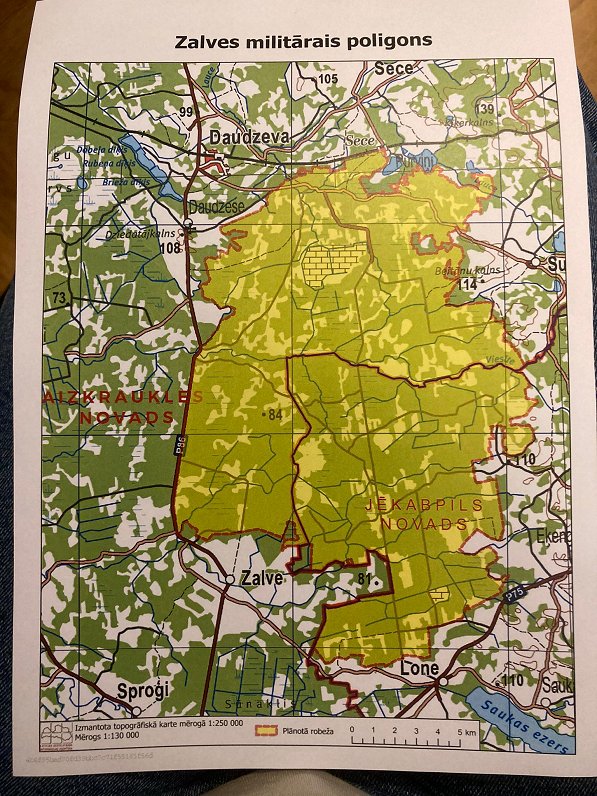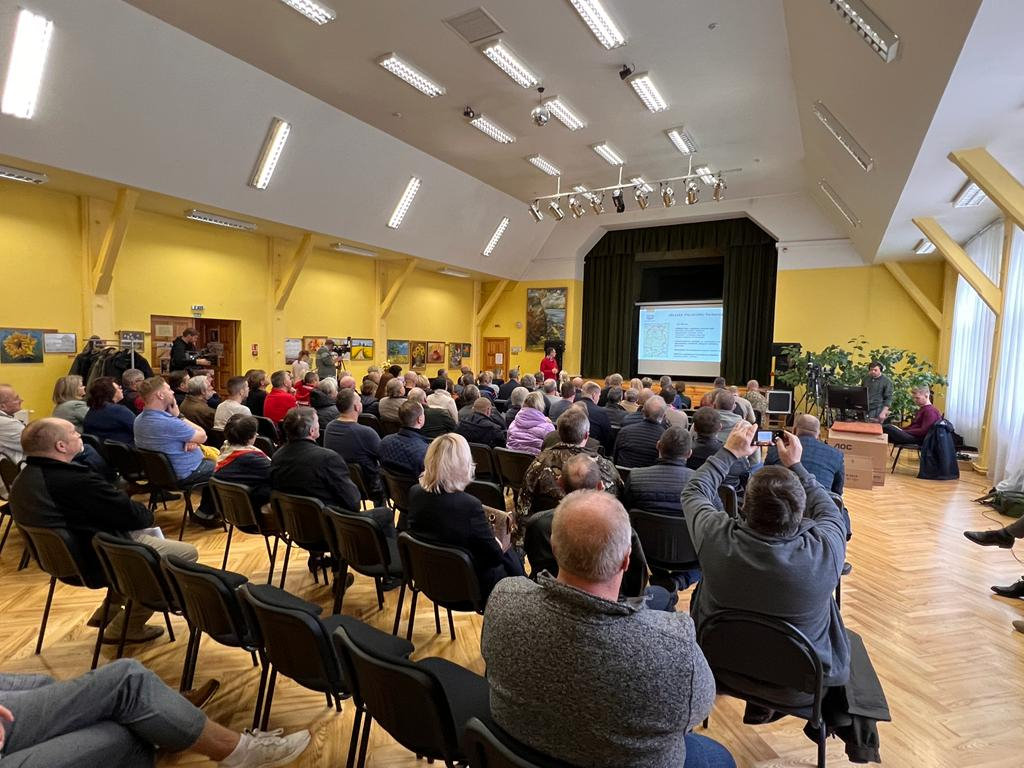However, there are still a lot of unknowns about the actual process and calculations of costs, as highlighted at a meeting organized recently by the Ministry of Defense with local residents, entrepreneurs and land owners.
Although the Ministry of Defense held the meeting with residents during working hours, the hall of the Seces Culture House was full. Entrepreneurs, land owners, hunters and others who are likely to be affected by the plan to build the Selija military zone had many questions.
It is planned to expropriate 12 real estate plots in the first round of construction. The owners are in the dark as to how this will happen and how the amount of compensation will be calculated.
Zigmunds Avens, a member of the board of the 'Gambija' hunting club pointed out the investments already made by members: "We currently have a house that has been renovated, overhauled, there are two outbuildings, there is a cellar. Last autumn, in December and January, we connected the electricity, and put in an artesian well. And what will be the compensation for this – it is not clear whether we can or cannot arrange a new place for it."
Residents whose real estate is located next to the planned military zone are also worried.
Tālis Bērziņš is worried that living next to a firing range will negatively affect property prices: "A military zone, a military base, creates various types of pollution, and form of pollution is noise. A property, which can be valued on the market, sold to people who want to live there, to stay close to nature, they have these qualities affected, reduced. So the value goes down. That's an aspect I don't hear any kind of comment about, how they're valued, or how they're compensated."

Forest owner Gita Millere also has many questions: "We have forests, forest properties. Today there was already talk about compensation. We fall off this list, it does not apply to us, but in the long term we do not know how it will be. Since our property is right on the border [of the current plans] it's also not clear if we're going to be affected in the final stages or not. I can't really see why certain plots of land that have arcs and curves that are included in the polygon that's going to be there. There's too little info."
The Ministry of Defense says that those owners whose plots of land are outside the territory of the military zone should prove that the value of their land will decrease as a result of the zone's construction. Only then could they claim compensation. On the other hand, those whose properties are included in the expropriation list will be paid appropriate compensation.
"The owner, if he has invested some financial resources, he can come and certify that it has been done. The aim in this process is to ensure that the owner can obtain an equivalent property for the compensation we pay. We have expropriated a lot of land, creating many properties, both during expansion of the Ādaži military zone and the Skrunda military zone. There were no cases where there were very big disagreements," said State Secretary of the Ministry of Defense Jānis Garisons.
Foreclosures could begin in a few months. "We will start moving [parliamentary] bill forward, we will start the discussion. At the moment when the decisions are made, we could start negotiations at the beginning of next year. But the owners have already been in contact, we have been talking to them since August," said Garisons.
As previously reported by LSM, the new Selija military zone will occupy an area of approximately 25,000 hectares in the Jēkabpils and Aizkraukle regions. Much of the land is already held by the state, but approximately one thousand hectares currently belong to companies and private owners. Construction is expected to take place around two years.
























